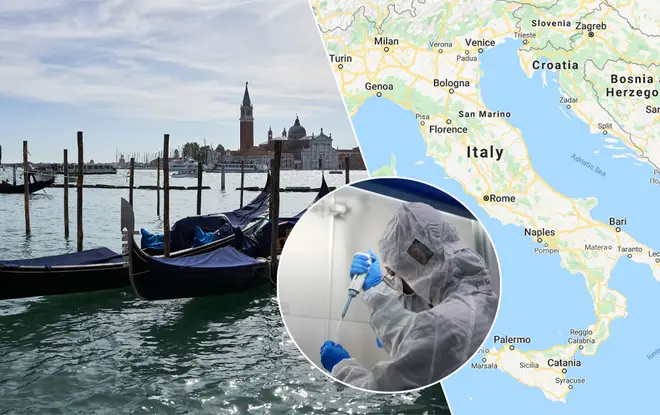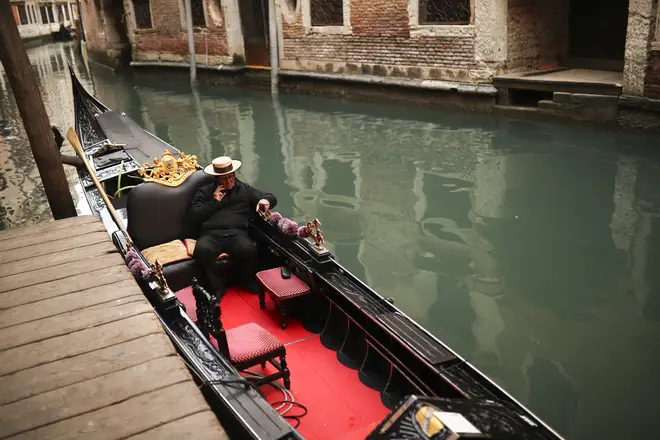Is it safe to travel to Italy? Expert advice following coronavirus outbreak
4 March 2020, 15:16 | Updated: 7 April 2020, 10:44

Cases of the deadly coronavirus continue to rise in Italy, so is it safe to travel there?
As of April 6th, 2010, The Foreign Office has changed the travel restrictions and are now advising against all non-essential travel "indefinitely".
A previous ban was set on March 17th, 2020 for an initial period of only 30 days, however, that advice has now been extended with no end date.
The FCO has stated on Twitter “Travel update: The Foreign Office indefinitely advises against all non-essential global travel.”
A video attached to the tweet read: “The situation is changing rapidly. Travellers could face severe disruption and be unable to return to the UK.“
Italy's coronavirus outbreak is spreading like wildfire and the number of cases in the country continues to rise, with thousands diagnosed in the country and the death toll at 79.
Certain areas of the country are on lockdown due to how widespread the disease is, with any tourists that have visited the country being told by officials the they should self-quarantine.
What's the current travel advice for Italy?
Currently, Italy has a whopping 2,502 confirmed cases of coronavirus in the country, and 79 people have died from the virus.
The North of the country has been hit the worst, with the Lombardy region having the most cases, but every part of the country bar one has had reported cases.

The UK government for residents has been to not travel to the 10 isolated towns unless absolutely necessary.
They wrote: "The FCO advise against all but essential travel to 10 small towns in Lombardy (Codogno, Castiglione d’Adda, Casalpusterlengo, Fombio, Maleo, Somaglia, Bertonico, Terranova dei Passerini, Castelgerundo and San Fiorano) and one in Veneto (Vo’ Euganeo), which have been isolated by the Italian authorities due to an ongoing outbreak of coronavirus (COVID-19)."
They continue: "They also add: "The government of Italy introduced extraordinary measures that allow regions to implement civil protection measures in response to coronavirus, including the isolation of the towns above.
"These measures were extended on March 1 and include school closures and changes to sporting fixtures in the regions of Lombardy, Veneto and Emilia Romagna, as well as in provinces closest to the outbreaks."
The Centres for Disease Control and Prevention (CDC) have raised the warning to Level 3, recommending all but non-essential to Italy.
Many Brits who return from the infected regions are being told to self-quarantine for two weeks, although are advised to get in touch with health officials and employers.
Health Secretary Matt Hancock told BBC Breakfast that tourists who have travelled to the regions already should "self-isolate whether or not they have symptoms".
Can I cancel my holiday to Italy?
At the moment, airlines aren't obliged to let you cancel any flights to Italy that aren't in the specifically affected regions, but there's a chance they'll let you change flights to another time.
Regions that are deemed safe to travel will not be affected by the new government advice, with airlines unlikely to allow you to change your flights without a fee.
British Airways are allowing passengers to delay their travel, and have cancelled a number of flights to Milan due to a drop in demand.
On social media, they explained: "Anyone travelling to Northern Italy and from 25 February-02 March can delay their travel anywhere up to 31 March.
"You can also change to travel either to Zurich or Geneva. If you were wanting to refund your booking then it would be as per the fare rules of your ticket."































